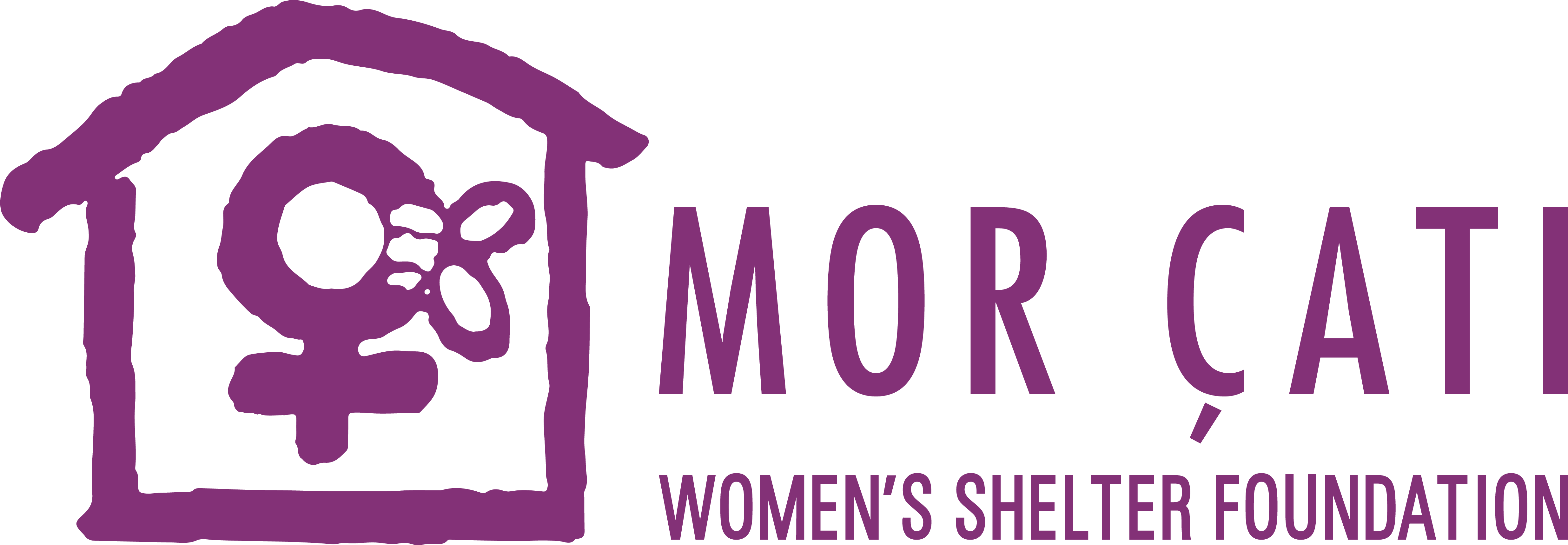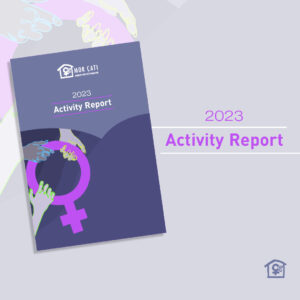Since 1990, as Mor Çatı, we have been putting up a struggle and building feminist solidarity against violence against women. Our goal is to empower women so that they can lead their lives free from violence. The solidarity we build and maintain in our solidarity center and shelter not only enables us to acquire knowledge on the effects of male violence on women but also equips us with insights into the mechanisms for combatting violence in Turkey.
As we have been emphasizing for many years, gender inequality is the root cause of violence against women, and pervasive gender-based discrimination against women in all areas of society perpetuates such violence. For this reason, in our struggle we highlight the various forms of discrimination women from all walks of life encounter in their lives and we forge solidarity with women against the hardships stemming from discrimination.
Today, we clearly see the consequences of withdrawing from the Istanbul Convention and anti-gender attitudes and sentiments that paved the way for this decision which effects various mechanisms created to combat violence. Opposition to the Convention persists through attacks on Law No. 6284, the right to alimony, and civil rights, shaping and determining how the existing laws are practiced and implemented. Instead of adopting an approach and practices centered around the empowerment of women and elimination of gender-based discrimination, the prevalent tendency prioritizes the protection of family over preventing violence. This approach erects barriers to women’s access to support and legal rights which are indispensable for women in their efforts to distance themselves from violence. Discrimination against LGBTI+s and migrants further hampers women’s access to even their fundamental rights.
Besides the extensive destruction they caused, the earthquakes in February 2023, also laid bare the problems in mechanisms established to combat violence against women. As we had frequently emphasized during the pandemic, such disasters and crises exacerbate the existing implementation problems and render the system almost inoperative. The visits we conducted to monitor the mechanisms to combat violence in the earthquake-affected zones along with the applications of the women in this region revealed that the efforts to combat male violence has nearly come to a halt. The existing problems and the absence of an emergency plan by the Ministry of Family and Social Services to address violence against women in crises left women without solutions in the face of violence. The employees of the institution, themselves affected by the earthquake, were left to carry out their work, often in damaged buildings, without support and a coherent plan.
Bad practices that women encounter when they apply to institutions as well as our interactions with those working in the field during the workshops or conferences show us once again the absence of standards in the support services offered to women. We have observed that even those who try deliver quality services with their own efforts often lack access to very basic support mechanisms such as regular supervision. Upon reviewing national action plans, we find that the Ministry of Family and Social Services fails to monitor its own initiatives and work, avoids engagement with women’s organizations, and entirely disregards gender equality, thereby hollowing out and undermining the mechanisms to fight violence against women.
As Mor Çatı, this year, we also focused on preventive efforts. In addition to protecting women from violence, punishing perpetrators, and coordinating institutions responses to violence—pillars outlined in the Istanbul Convention—the fourth pillar, the preventive work, includes different levels of practices directed at eliminating violence before it occurs. We organized a range of activities both to point out the importance of the work carried out at different levels by various women’s, LGBTI+, children and youth organizations in Turkey and to keep them on the agenda. Within this framework, we produced content that could facilitate the recognition of indicators of violence.
The experiences of women unequivocally tell us that ending violence against women necessitates societal transformation, achievable only through concerted efforts across all facets of life. In this year’s annual report, you will read about the experiences and struggles of women as well as our works. We share our report with the hope that these narratives, which give us strength to combat against all the difficulties in the system, will also inspire our feminist struggle against violence.

 Read the full report here
Read the full report here